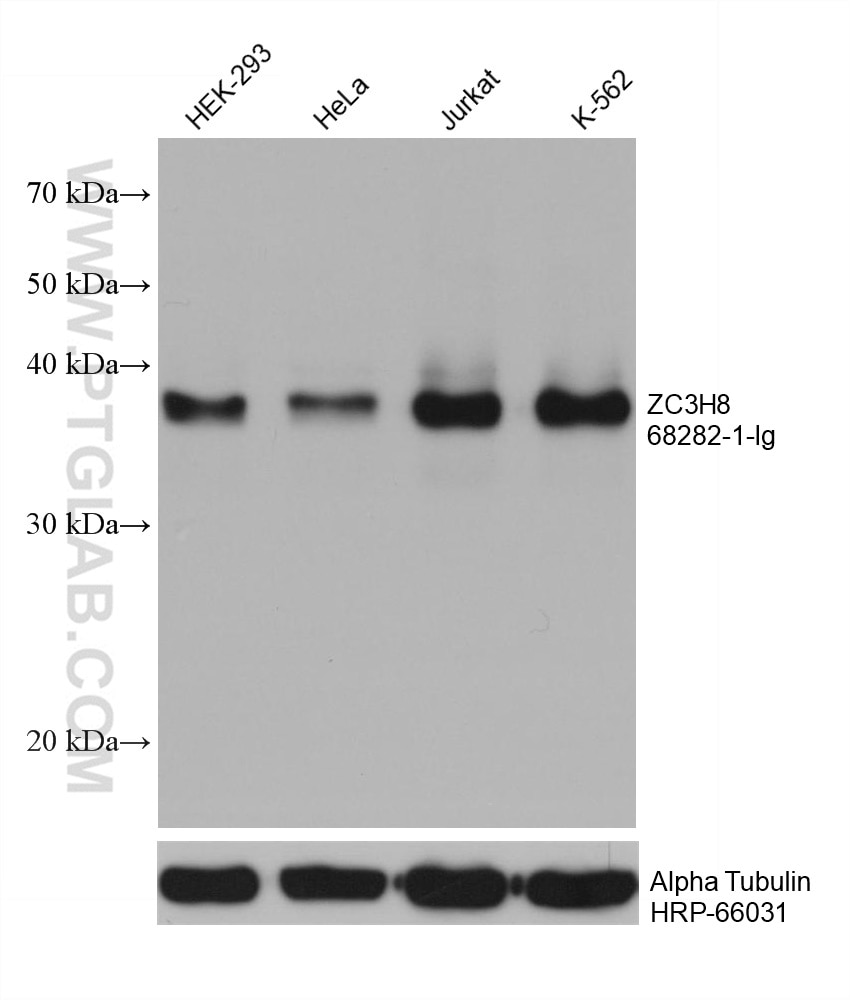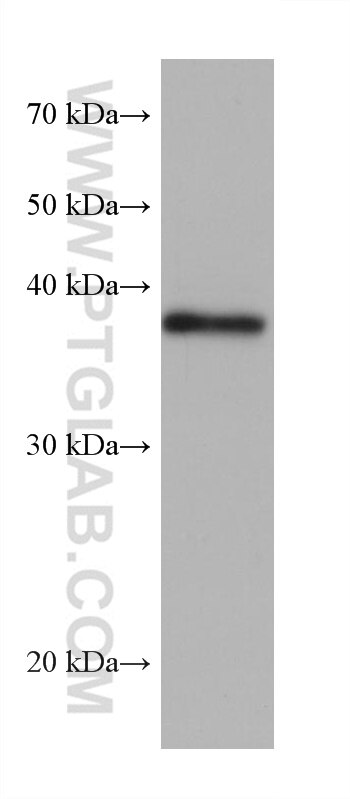ZC3H8 Monoclonal antibody
ZC3H8 Monoclonal Antibody for WB, ELISA
Host / Isotype
Mouse / IgG1
Reactivity
Human
Applications
WB, ELISA
Conjugate
Unconjugated
CloneNo.
1G8C6
Cat no : 68282-1-Ig
Synonyms
Validation Data Gallery
Tested Applications
| Positive WB detected in | HEK-293 cells, LNCaP cells, HeLa cells, Jurkat cells, K-562 cells |
Recommended dilution
| Application | Dilution |
|---|---|
| Western Blot (WB) | WB : 1:2000-1:10000 |
| It is recommended that this reagent should be titrated in each testing system to obtain optimal results. | |
| Sample-dependent, Check data in validation data gallery. | |
Product Information
68282-1-Ig targets ZC3H8 in WB, ELISA applications and shows reactivity with Human samples.
| Tested Reactivity | Human |
| Host / Isotype | Mouse / IgG1 |
| Class | Monoclonal |
| Type | Antibody |
| Immunogen | ZC3H8 fusion protein Ag23496 |
| Full Name | zinc finger CCCH-type containing 8 |
| Observed Molecular Weight | 36 kDa |
| GenBank Accession Number | BC032001 |
| Gene Symbol | ZC3H8 |
| Gene ID (NCBI) | 84524 |
| Conjugate | Unconjugated |
| Form | Liquid |
| Purification Method | Protein G purification |
| Storage Buffer | PBS with 0.02% sodium azide and 50% glycerol pH 7.3. |
| Storage Conditions | Store at -20°C. Stable for one year after shipment. Aliquoting is unnecessary for -20oC storage. 20ul sizes contain 0.1% BSA. |
Background Information
ZC3H8, also named as Fliz1, is a novel zinc finger protein preferentially expressed in fetal liver hematopoietic progenitors and in several adult organs, including the thymus. It acts as a transcriptional repressor of the GATA3 promoter. Sequence-specific DNA-binding factor that binds to the 5'-AGGTCTC-3' sequence within the negative cis-acting element intronic regulatory region (IRR) of the GATA3 gene. Overexpression of Fliz1 repressed the expression of GATA-3 in vivo and in vitro. GATA-3 might be partly regulated by the intronic regulatory region and Fliz1 in a developmental stage-specific fashion (PMID: 23932780).
Protocols
| Product Specific Protocols | |
|---|---|
| WB protocol for ZC3H8 antibody 68282-1-Ig | Download protocol |
| Standard Protocols | |
|---|---|
| Click here to view our Standard Protocols |



